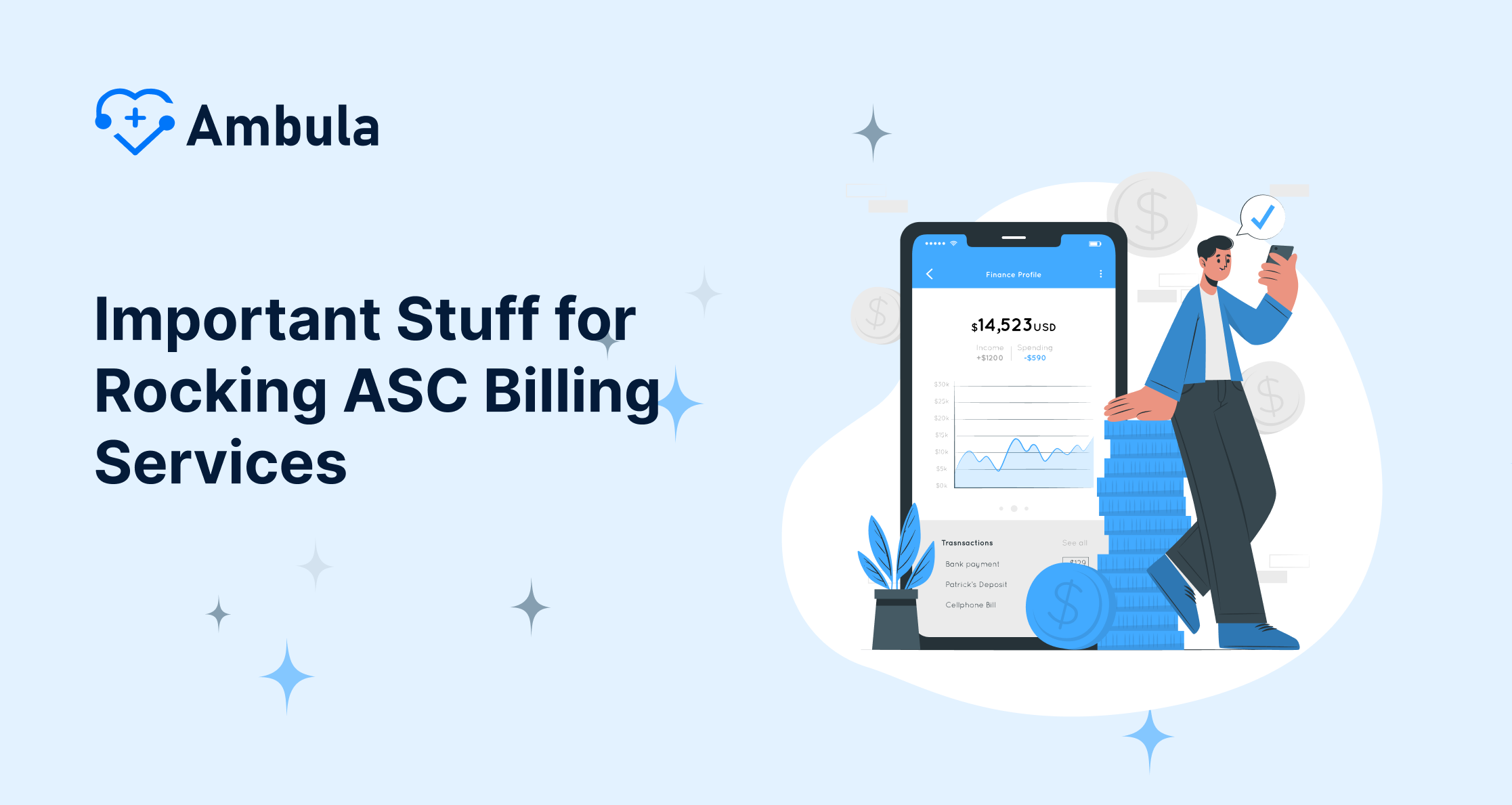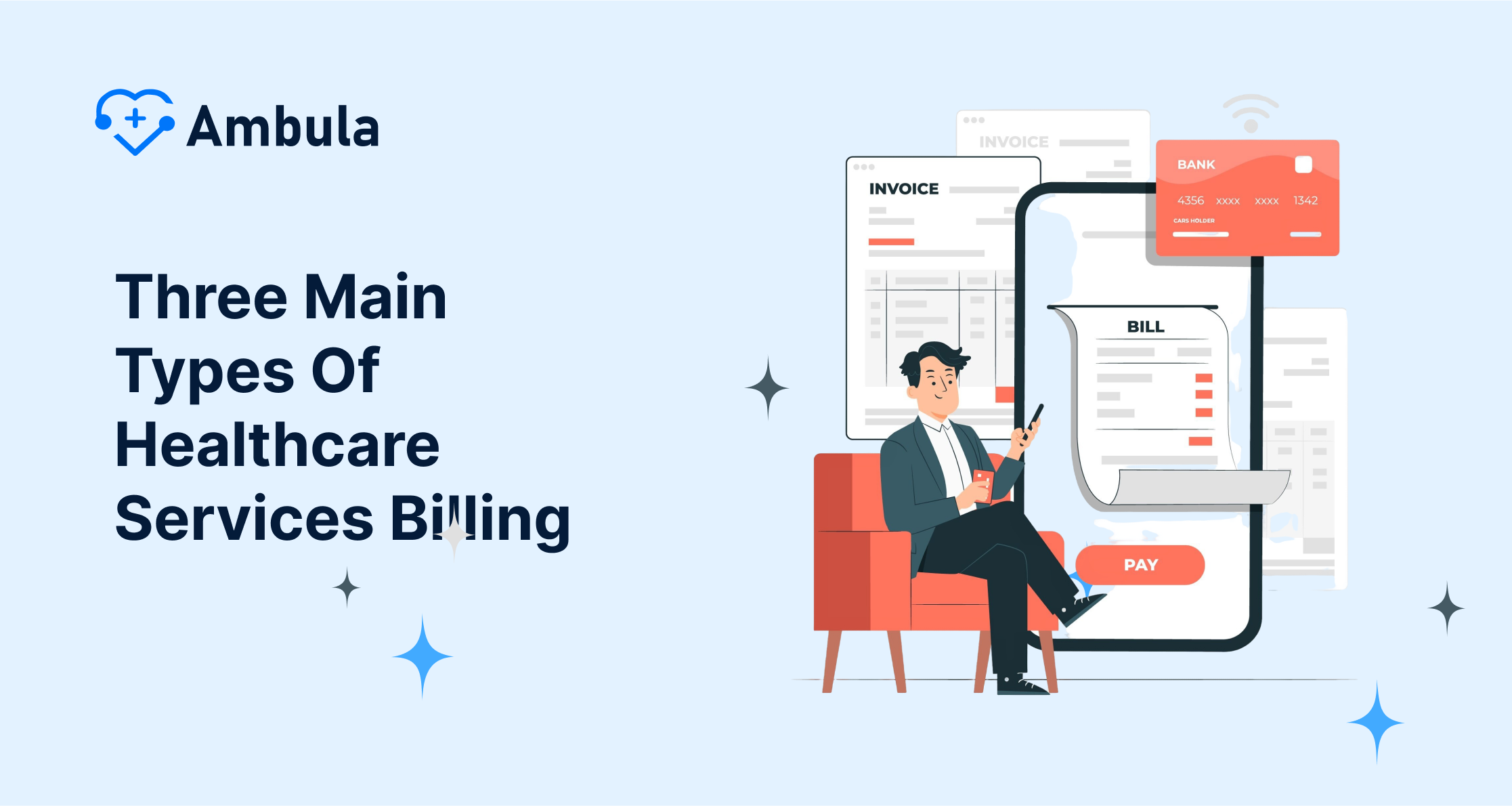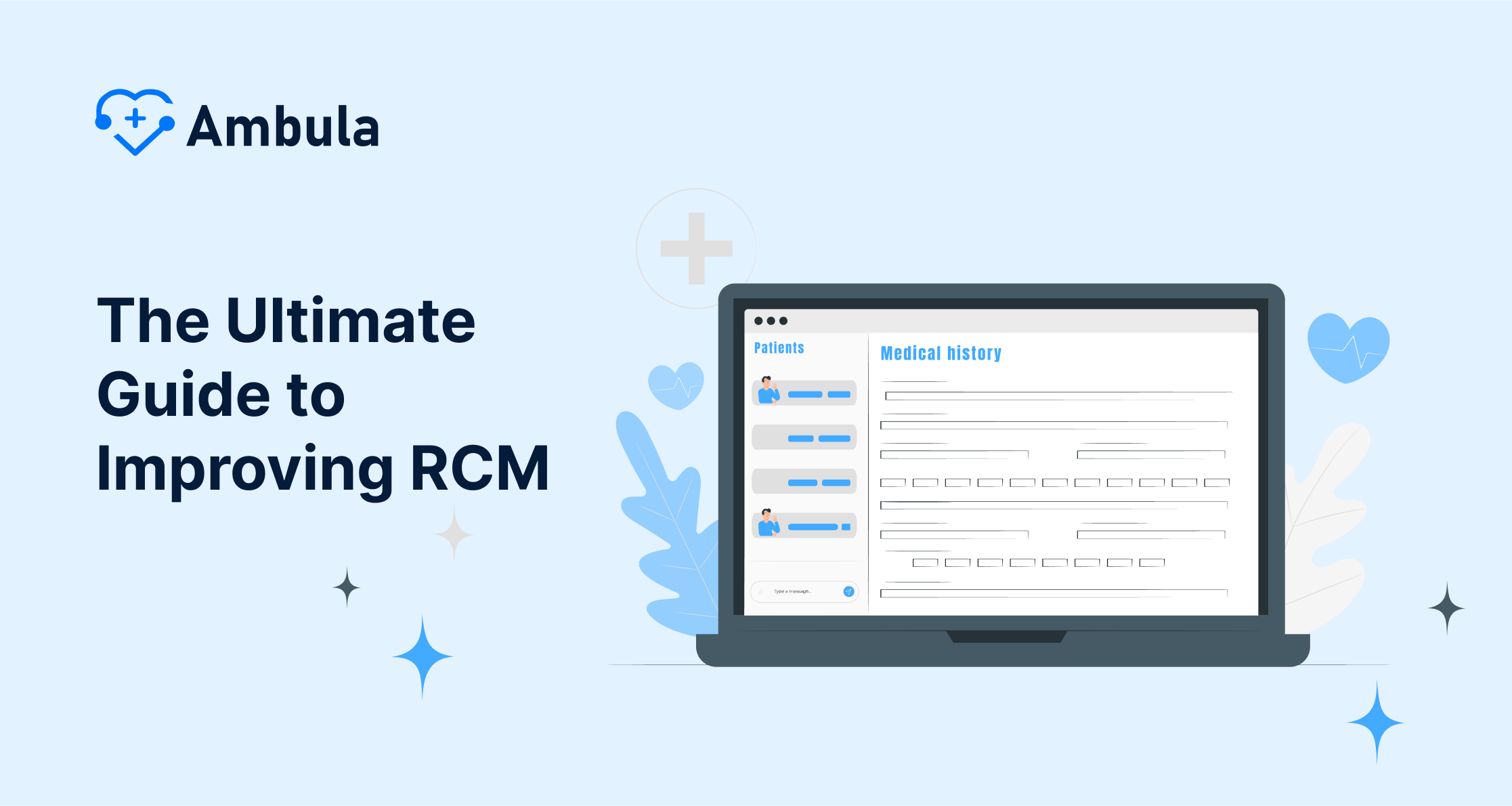nee
Nowadays, if you’re running an Ambulatory Surgery Center (ASC), you’ve gotta deal with some tricky stuff in keeping your cash flow healthy. Getting on board with ASC billing services is pretty much a must to make more money and keep things rolling without a hitch. They sort out all the tricky parts, like figuring out the codes and getting the cash you should from insurers. This helps surgery centers rake in the maximum amount of dough while playing by the rules that keep changing all the time.
The healthcare sector keeps changing, and with that, ASCs gotta switch up their game to keep up with fresh payment ways, coding rules, and paper standards. This write-up digs into how ASC billing help can make stuff run smoother, slash the number of claims denied, and boost the money flow. We’re gonna peek into what makes billing work well, how tech plays a part in making more money, and ways to tackle typical billing headaches that ambulatory surgical places deal with. If ASCs get pros to handle their billing, they can stick to giving top-notch care to patients while also making sure their wallet gets fatter and their business gets bigger.
Getting the Hang of ASC Billing Messes
ASCs navigate a tricky billing terrain that shakes up their cash flow. Different stuff, like shifts in health rules how the healthcare market moves, and new ways of paying back the money, all throw wrenches in the works.
Shaky Money Back Rates
ASCs face a big roadblock with the drop in how much they get paid back. Because Medicare and other insurance folks want to spend less cash, and there’s a push to pay for patient outcomes, this problem’s picked up speed. When the Medicare Modernization Act got rolling in 2003, it mixed things up a lot for how healthcare players get their money with this thing called OPPS. That puppy changed the game for what ASC PPS hands out in terms of dollars.
The usual payment for many surgeries covered at ambulatory surgical centers (ASCs) is figured out by taking the ASC relative payment weight and times it by the ASC conversion factor ($41.40 from the year 2008). However, the money ASCs get from contractors is a smaller amount than what they charge or the usual rate for the ASC payment. This setup can make the cash ASCs get kinda of hard to guess, and that throws a wrench in trying to plan their finances.
Shifts in Docs Working as Employees
The shift in how docs work is causing some tough times for Ambulatory Surgery Centers (ASCs). You’ve got more ASCs getting snatched up by the big healthcare crews, and the ones flying solo are getting squeezed to say “yes” to not-so-great rates from insurance peeps—less muscle to flex at the bargaining table, you know? It’s all ’cause everyone’s on the hunt to get more cash from those big-money insurance companies, with hospital-owned ASCs using their heft to cut sweeter deals.
Talking about saving dough while keeping quality in check, ASCs have got their work cut out for them. The insurance bunch and Uncle Sam’s crew are all about getting bang for their buck with value-based care. But hey, ASCs have a shot here since they don’t burn cash like hospitals. Just to give you the 411, hospitals can charge way more, like up to 58% more, than ASCs for the exact same fix-me-up jobs.
So, with this change, ASCs gotta stick to tough quality standards and gotta keep track of stuff to make sure they get good payment rates. ‘Cause lots of folks now have health plans with big deductibles, they have to pay more themselves, which means they’re looking for care that’s both good quality and doesn’t break the bank.
ASCs are gettin’ clever by adding more services and putting money into tech that makes patients happier and healthier. Doing this stuff can get them better payment deals and keeps them in the game as healthcare keeps changing.
Important Stuff for Rocking ASC Billing Services
Nailing billing services is super important for ASCs to keep the cash flowing right and stay solid with their finances. If they focus on the main stuff, ASCs can make their billing smoother and grab all the cash they’re supposed to get.
Getting Claims Right
To get paid on time, a clean claim is a must. ASCs need to check their work to spot any slip-ups before they send claims out, because if you goof, they might get tossed back. Stay on your toes about how you fill out those forms, since different folks in different places might want things in a certain way on those papers.
Making sure your operation notes are on point when you dictate them is super important. Without enough detail about what you did, you could end up missing out on cash. Don’t forget about the clock either. Those contracts with the folks who pay you have deadlines you have to hit so make sure you give yourself enough wiggle room for the back and forth that might happen.
Handling Rejected Claims
Managing denials is super important for “ASC” billing operations. Denials have been 20% more common for everyone in the last five years. It can cost as much as 25 bucks to fix each messed-up claim for outpatient centers. To tackle this, “ASCs” oughta:
- Make a log to spot trends and catch slip-ups or weird hold-ups with payers.
- Get on the front foot to understand why claims get bounced back and sort it out.
- Give the team fancy tech for checking patient details and coverage so they can spot the bloopers that cause denials right off the bat.
Money Coming In and Keeping Tabs
Good cash flow needs solid payment posting plus immediate action on follow-ups. Here’s what ASCs gotta do:
- Slap those payments on patient accounts real quick, like the same day they roll in. Toss them into the bank within a day.
- Maybe think about a lockbox for direct deposits; that’s a smart move for fast and secure cash.
- Get on those collection hustles for managed care peeps in about two weeks after you drop the claim. Look, Medicare and the gang send the dough over via electronic funds transfer in that kind of time frame.
Stick these critical steps in play, and ASCs are looking at some sweet improvements in how they handle billing stuff – fewer kicked-back claims and a more stacked revenue cycle. Oh, and keeping the crew sharp with the lowdown on insurance smarts and ways to keep those denials at bay is a big plus for making everything run smoothly.
Using Tech to Make More Money for ASCs
In today’s world where health care is changing, centers for outpatient surgery are now embracing tech to better their cash flow. With cool new tools and systems, these centers can make their work run smoother, get things right more often, and make more money.
EMR Implementation
For outpatient surgery places that want to up their game in managing money, Electronic Medical Record systems are the way to go. These cool systems bring together patient health stuff and money details, making it a smooth ride from caring for folks to getting paid. When these places start using EMR systems, they cut down on typing stuff by hand, make fewer mistakes, and speed up getting payments. This all-in-one approach means docs have everything they need to bill.
Automated Coding and Billing Software
So, we’ve got software now that does coding and billing by itself for outpatient surgery centers. This tech is like a shortcut to better cash flow. It takes all the data and figures out what services were given, and then it whips up a bill in no time. There’s less chance of messing up, which means everyone gets paid faster, and things are just less of a headache. With this setup, the folks running these places can focus on other important tasks, causing the software to handle the heavy lifting when it comes to billing.
Automated systems are causing a revolution in ASC revenue cycle handling. They utilize smart algorithms for precise code assignment and claim creation lowering the chance of mistakes and rejections. Forbes states that 78% of health systems now use Revenue Cycle Management (RCM) automation. This tech aids ASCs in dealing with the tricky world of medical coding making sure they stick to new rules and get the best possible payment rates.
Tools to Analyze and Report
ASCs harness revenue cycle analytics tools for a deep dive into their money matters. These tools grab, crunch, and make sense of numbers from start to finish in the money-making process beginning at patient sign-up all the way to getting paid. With these analytics in their toolkit, ASCs get to spot where things aren’t up to snuff and where they can jack up their game.
- Figure out where they’re dropping the ball and where to make things better.
- Keep an eye on super important stats.
- Catch on to patterns in both bum claims and cash flow from payouts.
- Decide smarter with solid data to up their earnings and slash expenses.
ASCs can now whip up tailored reports for folks like bosses, board folks, and office teams, all thanks to some fancy reporting tools. The info in these reports is a cinch to get through so making snappy decisions and plotting out strategy is a breeze.
Gettin’ on board with this high-tech gear, ASCs boost the way they handle their cash flow, and that’s a big win for the bank balance and keeping things running smooth.
Check out these articles after you’re done
What about specialty billing?
Before discussing how ambulatory surgery center billing services work, let’s take a look at specialty billing. As an ASC service provider, the procedure should be necessary if you want to get your reimbursement. ASC Documentation Requirements play a crucial role in this aspect. Certain requirements are essential for the medical procedure to be performed. The provider and patient mutually decide that matter. Proper documentation ensures that all necessary details are captured, making the billing process smoother and more accurate.
Additionally, charging is not focused on a designated medical specialty in the ASC setting. In fact, it doesn’t focus on specific services, procedures, and diagnoses. Thus, ASC billing doesn’t resemble any medical specialty billing. However, center billing within ASC uses the same codes, techniques, and guidelines as different medical entities. For example, ASC relies on CMS-1500 claim forms. On the other hand, hospitals use UB-04 claim forms to achieve reimbursement.
Besides, the types of services covered in this scenario depend on the status of the ASC guideline. If your ambulatory surgical center is credentialed, you can perform multiple procedures. Therefore, it is the fastest-growing healthcare service.
The ASC doesn’t cover:
- Prosthetic devices
- Neck, leg, back, and arm braces
- Ambulance services
- Independent laboratory services
- Physician services
- Artificial leg, arm, and eyes
- Non-implantable durable medical devices
Jumping to the costs
We clarified how do ambulatory surgery center billing services work, but what about the cost of medical billing services? Here we go. Medical billing services cost approximately from $875 to $10,300. This depends on the size of the enterprise. As well as on-site servers’ needs or their absence. Honestly, choose whether you need cloud or web-based software that runs on off-site servers. If implemented, you might want to save an additional 27 to $127 per month.
What is the best billing solution for your ASC?
Follow our tips to make the best out of your search for medical billing services for ASC:
1- Ask questions about the staff: before selecting a billing company, research. You want to find a company with minimum turnover. You should choose a company with no offshore services.
2- Search for coders with ASC experience: coding with ASC differs from that of a physician’s office. Search for companies with certified coders who obtained ASC experience.
3- Don’t form unrealistic expectations: your results won’t be instant when you move towards a billing services company. So, try to appreciate the learning curve when working together. Of course, you are advised to share your expectations.
4 –Team approach: the billing services company is an extension of your team and the opposite. Therefore, communication is key to reducing issues.
5-Order monthly reports: you can solve any issue with visibility.
6-Remember to benchmark: determine the value of your provider through benchmarking analysis. Plus, it’ll help you with successful billing.
Finally, you arrived at the other side of knowledge regarding ASC billing services. We hope that you found this helpful with your decision-making and management.
Now, if any questions are still hanging, do not hesitate to communicate with the Ambula Healthcare team at (818) 308-4108! And now check out what is medical billing and coding in ASC?
FAQs
What are some strategies to enhance the efficiency of the revenue cycle?
To boost the efficiency of your revenue cycle, consider several strategies: Enhance appointment scheduling, automate patient eligibility verification, confirm payment processes upfront, modernize claims processing, outsource medical billing, manage claim denials, and consistently track and follow up on claims.
How can a healthcare organization increase its revenue cycle efficiency?
Healthcare organizations can increase revenue cycle efficiency by implementing workflow automation, providing additional training and resources to staff, and investing in systems that consolidate various claims and files into a single, manageable location.
What does the revenue cycle entail in healthcare billing?
In healthcare, the revenue cycle management (RCM) is a crucial business process that facilitates organizations in getting paid for services rendered. This cycle includes 17 distinct steps starting from patient scheduling and culminating in payment reconciliation.
Can you explain the billing process in Ambulatory Surgery Centers (ASC)?
Ambulatory Surgery Centers (ASC) billing involves receiving the lesser amount between the actual charge for a service or the standard ASC payment rate. The Centers for Medicare & Medicaid Services (CMS) determine this rate using the ASC Conversion Factor (CF) and the relative payment weight for each payable procedure or service.







